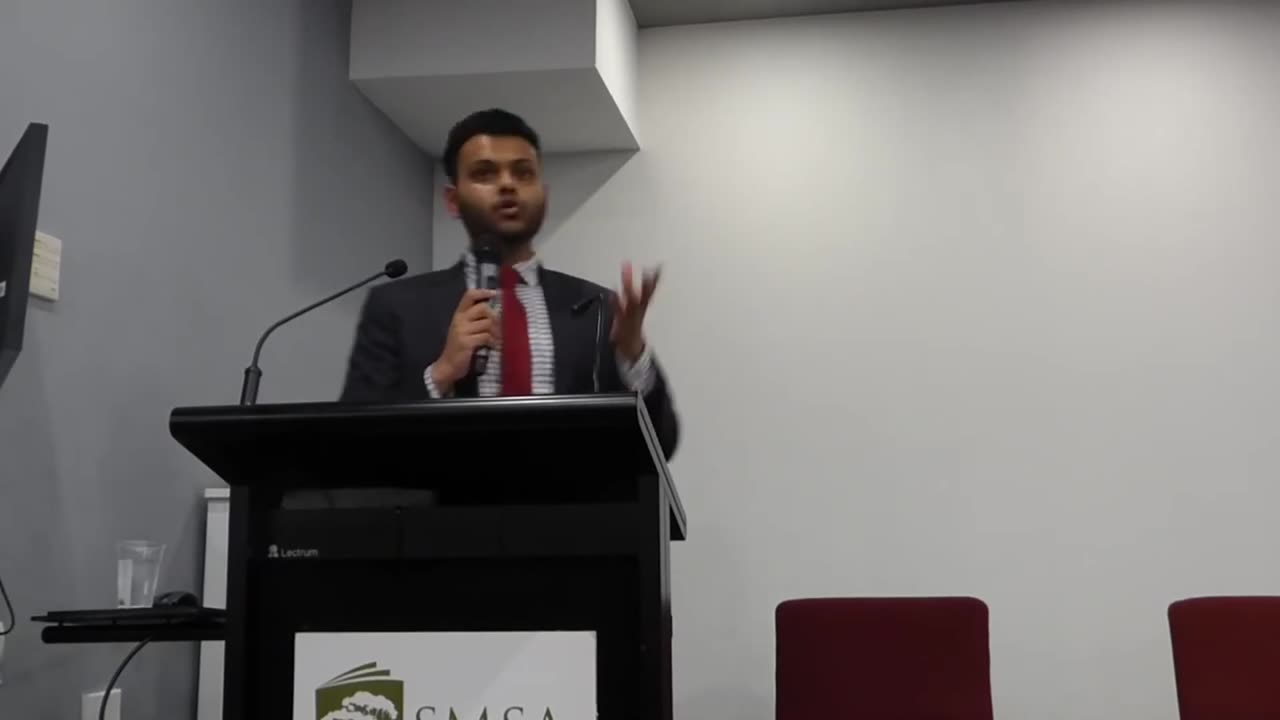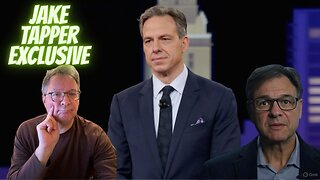Premium Only Content

Satya Marar: Big Tech out of Control
SUMMARY:
------------------------------
I’m excited to share this spirited panel talk from Satya Marar on the hot-button topic of ‘Big Tech out of control’. Satya — a policy professional, writer and former policy director of the Australian Taxpayers Alliance and ex-solicitor to the New South Wales Supreme Court — takes aim at common narratives about censorship, moderation and the power of platforms. He argues social media like Facebook, YouTube and Twitter have unquestionably created echo chambers and incentivised outrage, but warns the story isn’t that simple. Rather than blaming tech alone, Satya unpacks deeper drivers of polarisation: the breakdown of local institutions, loss of regional and working-class jobs, and growing asset inequality since the GFC. He explains how platform design rewards anger and engagement, how anonymity fuels bullying, and why those structural pressures make online discourse nastier. At the same time he suggests the platforms have also exposed people to new perspectives and loosened old gatekeepers. This talk is thoughtful, slightly contrarian and full of practical observations — great if you care about free speech, regulation and how online spaces shape our politics. Watch, think and join the conversation!
RUMBLE DESCRIPTION:
-----------------------------------
Satya Marar joins the panel to tackle a question everyone’s talking about: are Big Tech platforms out of control? Satya — a policy professional, writer and former policy director of the Australian Taxpayers Alliance (and ex-solicitor to the NSW Supreme Court) — gives a clear, candid and sometimes contrarian take on how social media shapes our public life.
In this talk Satya focuses on social platforms like Facebook, YouTube and Twitter. He explains why echo chambers form, how algorithms reward outrage and engagement, and why anonymous accounts contribute to a toxic bullying culture. But he doesn’t stop at blaming technology alone. Satya digs into the underlying social and economic forces driving polarisation: the breakdown of local infrastructure, the hollowing out of regional and working-class jobs, and widening asset inequality since the GFC. These structural pressures, he argues, amplify the worst features of online discourse.
At the same time Satya points out that platforms aren’t purely negative — they’ve also broadened exposure and undermined old media gatekeepers. The result is a complex mix of harms and benefits that demands thoughtful responses, not simple slogans.
If you care about free speech, content moderation, tech regulation, or the broader causes of social polarisation, this talk is a must-watch. Leave a comment with your experiences online, share if you found the points thought-provoking, and subscribe for more discussions on tech, policy and society. Let’s keep the conversation civil and constructive.
⚠️ CONTENT DISCLAIMER ⚠️
The views, opinions, and statements expressed in this video are those of the individual speaker(s) and audience members. They do not necessarily reflect the views, opinions, or positions of Western Heritage Australia or its affiliates.
This content is presented for educational and informational purposes as well as to facilitate public discourse on important social and political issues. We provide a platform for diverse Australian voices to be heard, to assist the public in forming their own informed opinions.
Western Heritage Australia does not endorse, verify, or take responsibility for the accuracy of statements made by speakers. All claims, statistics, and opinions remain the responsibility of the original speaker. Viewers are encouraged to conduct their own research and consult multiple sources when forming opinions on these topics.
This video may contain strong political opinions, controversial viewpoints, strong language, or mature themes. Viewer discretion is advised.
-
 14:08
14:08
Forrest Galante
11 hours agoPrivate Tour Of the World's Most Expensive Pet Show
139K10 -
 13:50
13:50
Nikko Ortiz
21 hours agoStop Hurting Yourself For Views.
25.3K12 -
 2:07:06
2:07:06
Side Scrollers Podcast
1 day agoDiaper Furry Streamer Gets ONLY ONE DAY Suspension + Hasan PLAYS VICTIM + More | Side Scrollers
51.7K23 -
 56:38
56:38
DeProgramShow
2 days agoDeprogram with Ted Rall and John Kiriakou: "Jake Tapper on the Global Hunt for an Al Qaeda Killer”
15.3K5 -
 1:43:07
1:43:07
The Michelle Moore Show
2 days ago'The 12 Open Doors' Guest, Steve Jarvis: The Michelle Moore Show (Oct 17, 2025)
24.4K12 -
 LIVE
LIVE
Lofi Girl
3 years agolofi hip hop radio 📚 - beats to relax/study to
83 watching -
 1:45:06
1:45:06
Badlands Media
1 day agoDevolution Power Hour Ep. 399: No Kings, Antifa’s Collapse & Trump’s Year of Peace
294K116 -
 2:56:00
2:56:00
Laura Loomer
14 hours agoEP150: New Yorkers Brace For Islamic Takeover After Mayoral Election Debate
89.5K113 -
 1:35:37
1:35:37
Man in America
19 hours agoThe Forbidden Medicine of Light: Why is Big Pharma HIDING This From Us?
74.9K33 -
 2:35:13
2:35:13
BlackDiamondGunsandGear
12 hours agoAFTER HOURS ARMORY / BUILDING GUNS ARE ILLEGAL? / Marine Gun Builder RETURNS!!
28.2K5